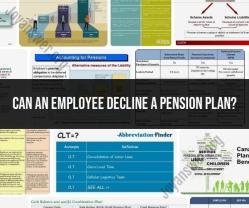Is it legal to change from salary to hourly pay?
Transitioning an employee from a salaried (exempt) position to an hourly (non-exempt) pay structure can generally be legal, but it must be done in compliance with labor laws and regulations. Here are some important legal considerations to keep in mind when making such a transition:
1. Fair Labor Standards Act (FLSA) Compliance:
The Fair Labor Standards Act (FLSA) is a federal law in the United States that governs wage and hour regulations. Under the FLSA, certain employees are classified as exempt (salaried) and others as non-exempt (hourly) based on criteria related to their job duties and salary level. To transition an employee from salary to hourly pay, you must ensure that the change in classification aligns with the FLSA guidelines.
2. Job Duties and Exemptions:
Exempt employees typically perform exempt job duties, which may include managerial, administrative, or professional tasks. Non-exempt employees, on the other hand, are entitled to overtime pay for hours worked beyond 40 hours in a workweek. When transitioning from salary to hourly pay, you should reevaluate the employee's job duties to determine if they meet the criteria for exempt or non-exempt status.
3. Overtime Compensation:
If the employee will become non-exempt, you must establish an hourly pay rate and clarify how overtime will be calculated and compensated. Non-exempt employees are entitled to overtime pay at a rate of at least one and a half times their regular hourly rate for all hours worked beyond 40 in a workweek.
4. Minimum Wage Compliance:
Ensure that the hourly pay rate complies with federal and state minimum wage laws. The employee's hourly rate must meet or exceed the applicable minimum wage.
5. Notice and Communication:
Properly communicate the changes to the affected employee, including the effective date of the transition, the new hourly rate, the method of calculating overtime, and any changes to benefits, if applicable.
6. Record Keeping:
Accurate record-keeping is essential when transitioning to hourly pay. Maintain records of all hours worked, including overtime hours, and ensure that employees are tracking their time accurately.
7. Benefits and Benefits Eligibility:
Determine how the transition will affect the employee's benefits, such as health insurance, retirement plans, and paid time off. Some employees may lose or gain benefits based on their new status.
8. State and Local Laws:
Be aware of state and local labor laws, as they may impose additional requirements or restrictions on employee classifications and wage rates.
9. Consult Legal Counsel:
It is advisable to consult with legal counsel or an HR expert who is well-versed in employment law to ensure that the transition is in compliance with all applicable laws and regulations.
Keep in mind that the legal requirements and implications of transitioning from salary to hourly pay can vary depending on your location, industry, and specific circumstances. It is crucial to consult with professionals who can provide guidance tailored to your situation to ensure legal compliance throughout the transition process.
Exploring the Legality of Changing from Salary to Hourly Pay
In general, it is legal for employers to change an employee's compensation from salary to hourly pay. However, there are a few exceptions to this rule.
- Exempt employees: Employers cannot change the compensation of exempt employees from salary to hourly pay without first reclassifying them as non-exempt employees. Exempt employees are those who are exempt from the overtime pay provisions of the Fair Labor Standards Act (FLSA).
- Employees with contracts: If an employee has a contract that specifies their compensation as salary, the employer cannot change their compensation to hourly pay without the employee's consent.
- Employees in collective bargaining agreements: If an employee is covered by a collective bargaining agreement (CBA), the employer cannot change their compensation to hourly pay without the union's consent.
If you are an employer who is considering changing an employee's compensation from salary to hourly pay, it is important to consult with an attorney to ensure that you are in compliance with all applicable laws and regulations.
Considerations for Transitioning from Salary to Hourly Compensation
If you are an employee who is being transitioned from salary to hourly pay, there are a few things you should consider:
- Your pay rate: Your hourly pay rate should be calculated in a way that ensures that you will earn at least the same amount of money as you did when you were salaried.
- Overtime pay: If you are being transitioned to hourly pay, you will be eligible for overtime pay if you work more than 40 hours in a week.
- Benefits: If you are being transitioned to hourly pay, you may lose some of your benefits, such as paid time off and health insurance.
It is important to discuss all of these considerations with your employer before agreeing to a transition from salary to hourly pay.
Legal Requirements and Implications of Changing Pay Structure
Employers who are considering changing an employee's compensation from salary to hourly pay must comply with all applicable laws and regulations. This includes the FLSA and any state or local laws that may be applicable.
The FLSA requires employers to pay employees overtime pay if they work more than 40 hours in a week. However, exempt employees are not eligible for overtime pay.
Employers should also be aware of any state or local laws that may apply to changing an employee's compensation from salary to hourly pay. For example, some states have laws that require employers to give employees notice before changing their compensation structure.
If you are an employer who is considering changing an employee's compensation from salary to hourly pay, it is important to consult with an attorney to ensure that you are in compliance with all applicable laws and regulations.
Here are some additional tips for employers and employees when considering a change from salary to hourly pay:
- Employers: Communicate the reasons for the change to employees in a clear and concise manner. Be prepared to answer any questions that employees may have.
- Employees: Ask questions about the change and make sure that you understand your new pay structure and benefits package.
- Both employers and employees: Be aware of any legal requirements or implications that may apply. If necessary, consult with an attorney.













